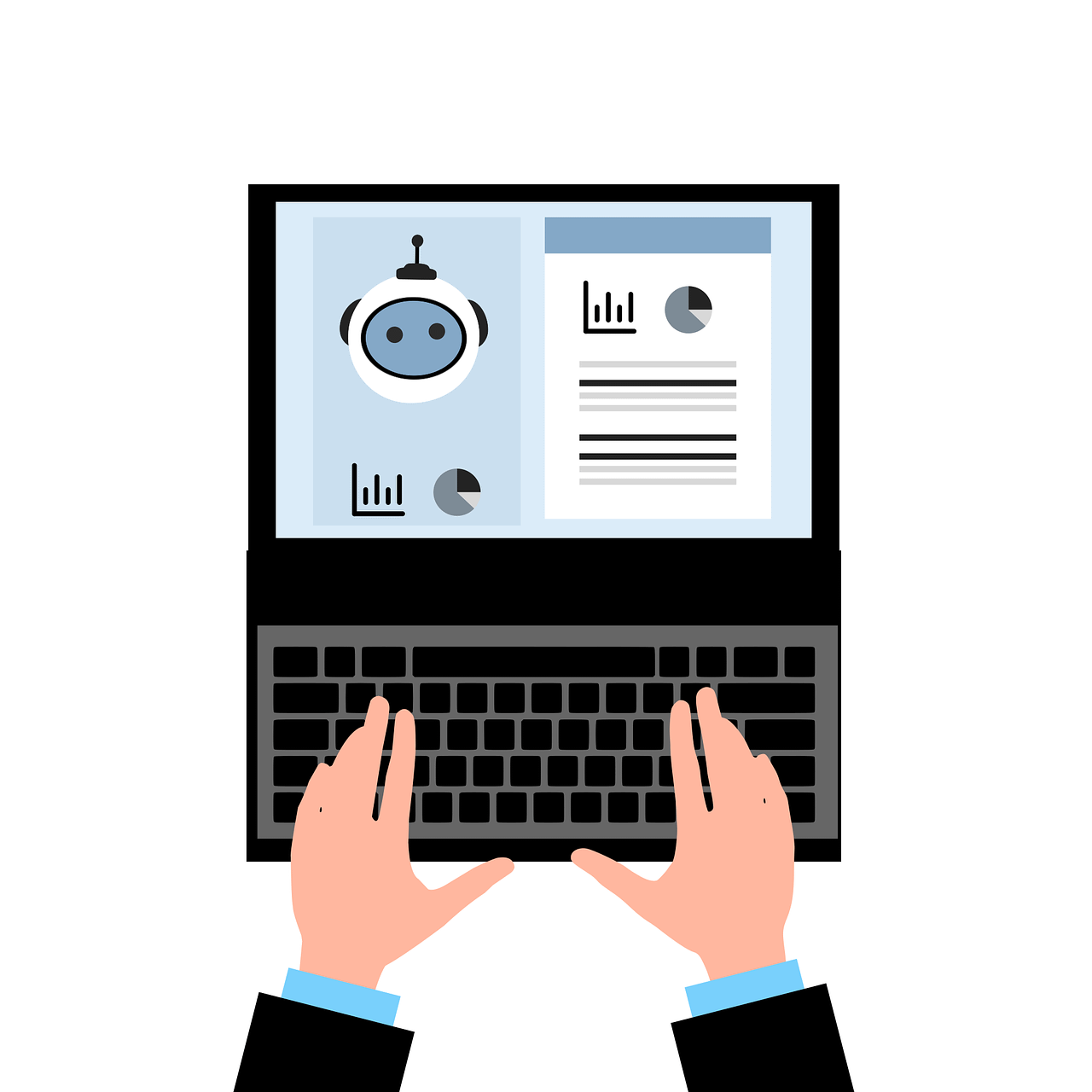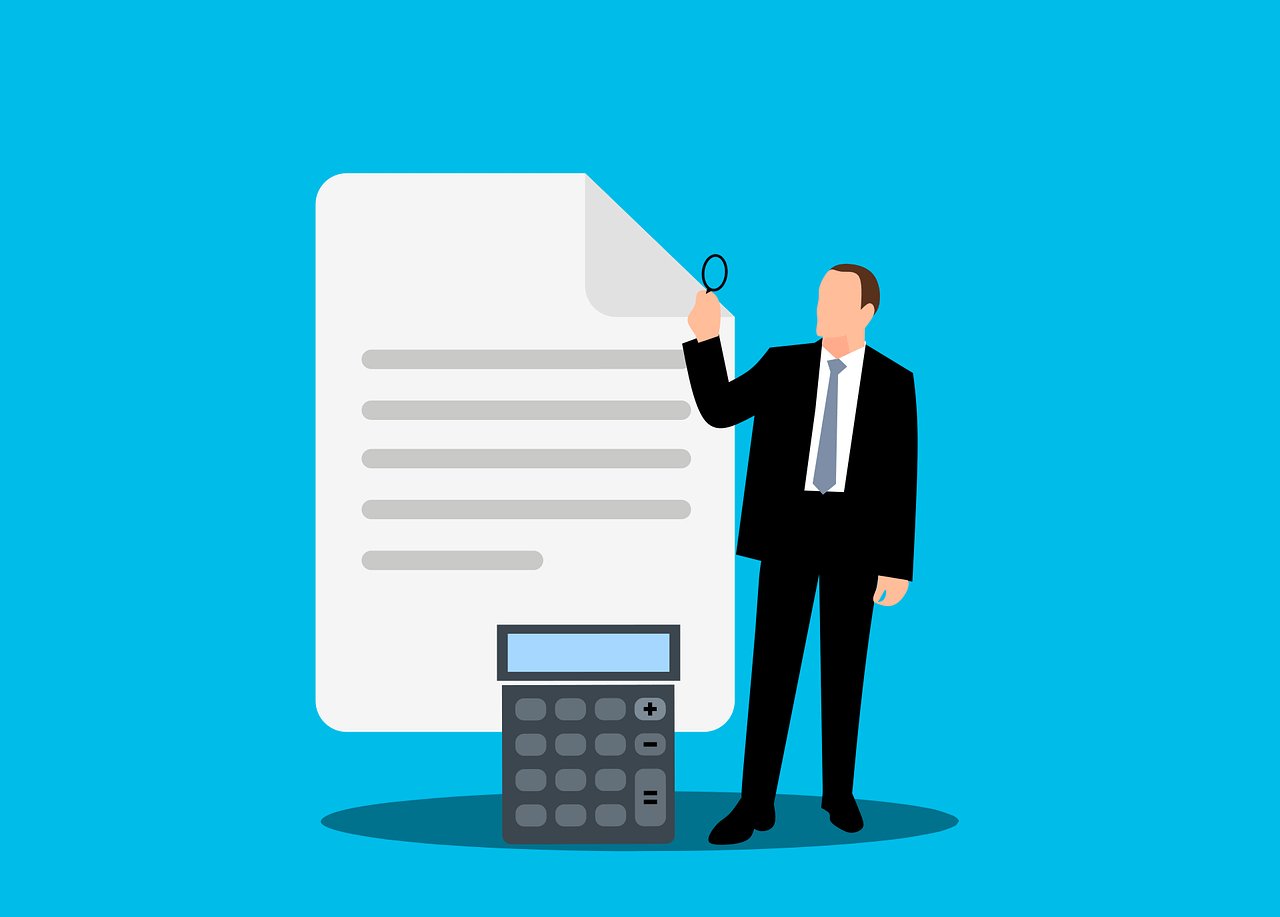The benefits of AI in accounting are becoming hard to ignore. As artificial intelligence (AI) reshapes industries from logistics to law, the accounting profession is undergoing a quiet but powerful shift.
MORE: AI Billing
AI in accounting isn’t just about automating routine tasks—it’s changing how financial data is processed, analyzed, and acted upon.
Accounting firms and in-house teams are adopting AI tools to handle everything from data entry and invoice processing to predictive analytics and fraud detection.
These tools don’t just improve speed—they help reduce human error, support better decision-making, and allow accounting professionals to spend more time on strategic analysis instead of repetitive tasks.
In this article, we’ll break down how AI is impacting both daily operations and long-term strategies in accounting.
From faster reporting to better financial forecasting, you’ll see how artificial intelligence is helping modern accounting teams work smarter—not just faster. Whether you’re a CFO, staff accountant, or exploring accounting AI tools for your firm, this guide will show how AI is revolutionizing accounting processes across the board.
Overview: AI in Accounting Today
AI in accounting is already embedded in the workflows of many accounting firms, transforming how tasks are executed and decisions are made. From small businesses to enterprise-level finance teams, artificial intelligence is becoming a core part of modern accounting systems.
Here’s where AI fits into today’s accounting processes:
Data entry and categorization: AI accounting software uses robotic process automation and machine learning to handle large volumes of financial data. This replaces manual data entry, significantly reducing human error and improving accuracy.
Invoice processing and expense tracking: AI tools like Vic.ai and Tipalti automate invoice approvals and expense reports. These platforms apply natural language processing to read receipts and match them with transactions, saving time and improving compliance.
Audit automation: AI can scan documents, identify patterns in financial statements, and flag anomalies. This streamlines internal accounting processes and shortens audit cycles.
Predictive analytics and forecasting: Machine learning models analyze historical data and market trends to help businesses make more accurate forecasts and better financial plans.
Natural language report generation: Some AI systems can turn structured financial data into written reports, making financial analysis more accessible to non-accountants.
How Accountants Use AI
Tools like NetSuite, Datarails, and Booke.ai are at the forefront of this shift, combining traditional accounting practices with cutting-edge AI capabilities. These platforms allow accounting professionals to analyze financial data in real time and spot potential issues before they escalate.
Instead of spending hours reviewing spreadsheets, accountants can use AI to extract valuable insights from financial transactions and make more informed recommendations.
For example, automated data entry tools can reduce the time it takes to process hundreds of receipts, while predictive analytics helps identify cash flow issues before they become a problem.
With AI integrated into accounting workflows, teams can focus less on repetitive accounting tasks and more on strategic decision-making, improving the business’s financial health in the process.
Top 10 Benefits of AI in Accounting
Artificial intelligence is changing accounting from the ground up. It’s not just about faster data entry—it’s about transforming how you manage financial data, reduce costs, support compliance, and improve decision making.
Below, we’ll explore the top ten accounting AI benefits and how they impact real accounting teams, finance leaders, and long-term business strategies.
1. Increased Speed and Efficiency
AI tools are built to handle repetitive tasks that often slow down accounting teams. Processes like reconciliations, invoice approvals, and expense categorization can now be completed in a fraction of the time through automation.
Instead of manually entering or organizing thousands of financial transactions, AI systems process data in real time. This means you can close the books faster, deliver reports sooner, and spend more time on higher-level analysis.
Here’s how AI boosts efficiency:
Automated data entry: AI tools reduce the time spent on manual data entry by instantly extracting and processing information from receipts, invoices, and bank statements.
Faster month-end close: Tools like Vic.ai and Datarails speed up reconciliation by matching transactions and highlighting discrepancies automatically.
Streamlined expense reports: AI bots can process and approve expense reports without human review, reducing turnaround time.
Fewer bottlenecks: Automated workflows eliminate the delays that often come from chasing approvals or double-checking data.
Many accounting firms are already seeing results. By automating routine tasks, they’ve significantly reduced turnaround time for financial reporting. Teams no longer have to rush to meet deadlines—they have more time to review, advise, and plan ahead.
The end result: faster operations, happier clients, and a more agile accounting function.
2. Improved Accuracy and Reduced Human Error
AI in accounting isn’t just faster—it’s more accurate. Human error is one of the most common causes of accounting mistakes, especially during manual data entry or reconciliation. AI tools help reduce these errors by applying consistent logic and learning from historical financial data.
Here’s how AI improves accuracy across accounting processes:
Fewer data entry mistakes: Automated systems extract information directly from source documents, eliminating typos and misclassifications.
Consistent transaction processing: AI bots apply the same rules every time, removing the variability that comes with human input.
Error detection: AI systems flag outliers and inconsistencies in financial data, giving you a chance to fix them before they become problems.
Reliable invoice processing: With natural language processing, AI accounting software can interpret and categorize invoices with high precision, reducing duplicate payments and misfiled records.
Platforms like Tipalti and Booke.ai use AI to scan thousands of financial transactions and instantly identify anomalies. This helps accounting teams spot issues early and spend less time on tedious corrections.
For accounting firms and finance departments, the payoff is huge. Fewer errors mean cleaner financial statements, smoother audits, and more trust in the numbers used for financial analysis and planning.
By reducing human error, AI technology strengthens the foundation of your accounting systems and helps your team operate with more confidence and control.
3. Cost Savings Across Operations
One of the most immediate and measurable benefits of AI in accounting is cost savings. By automating routine tasks, accounting firms can significantly reduce the time and labor required for day-to-day operations. This translates to lower overhead, fewer staffing bottlenecks, and more efficient resource allocation.
Instead of hiring additional staff to handle growing workloads, many teams are turning to AI tools to scale operations without increasing headcount.
Tasks like expense report approvals, invoice processing, and reconciliation can now be handled by AI bots, freeing up team members for more complex work. This shift reduces the need for manual intervention, saving both time and money.
How It Saves
AI also cuts costs by minimizing error-related rework. Manual processes often lead to small mistakes—miskeyed numbers, missed entries, or misclassified expenses—that can cause compliance issues or require additional hours to fix. AI systems apply rules consistently, reducing the chance of these costly errors slipping through.
In the long run, implementing AI means your accounting team can do more with less. Whether you’re managing internal accounting processes or supporting multiple clients, AI helps contain costs while improving output quality.
That’s why many accounting firms view AI as a long-term investment—not just in technology but in sustainable operational efficiency.
4. Real-Time Financial Visibility
AI in accounting gives you access to live financial data, not just end-of-month snapshots. With AI-powered dashboards and real-time reporting, you can see where your finances stand at any moment—without waiting for manual updates or reconciliations.
Instead of digging through spreadsheets, accounting professionals can now rely on AI systems to continuously track transactions, categorize them, and generate up-to-date financial reports. This helps decision-makers respond faster to opportunities and challenges, whether it’s managing cash flow or adjusting forecasts based on market changes.
Accounting AI tools like Datarails and NetSuite offer real-time insights into revenue, expenses, and key performance metrics. These platforms automatically pull in financial data from various sources, standardize it, and present it in a clear, actionable format. That means fewer delays and a lot more confidence in the numbers you’re using to make decisions.
This level of visibility also supports better strategic decision-making. With access to current data, business leaders can react quickly to budget deviations, cash shortages, or emerging risks. It becomes easier to manage spending, allocate resources, and improve financial planning—all based on accurate, timely information.
Real-time financial visibility isn’t just a convenience—it’s a competitive advantage. AI makes it possible for accounting teams to stay ahead rather than catch up.
5. Fraud Detection and Risk Management
AI plays a growing role in helping accounting teams detect fraud and manage risk more proactively. By analyzing financial transactions in real time, AI systems can identify patterns that indicate suspicious behavior—something that’s nearly impossible to catch manually at scale.
Here’s how AI strengthens fraud detection and risk management:
Pattern recognition: AI systems learn what typical financial activity looks like and flag anything unusual, such as duplicate payments, unauthorized vendor changes, or out-of-policy expenses.
Continuous monitoring: Unlike manual audits, AI tools operate 24/7, constantly scanning for red flags across all financial data.
Audit trail generation: AI can create detailed logs of every transaction and action, helping internal audit teams trace issues quickly and with less effort.
Risk scoring: Transactions or vendors can be automatically scored for risk, allowing you to prioritize what to review.
Platforms like Booke.ai and Vic.ai are already helping many accounting firms strengthen internal controls. These tools reduce the reliance on periodic audits by offering ongoing fraud detection powered by machine learning.
AI helps accounting professionals keep sensitive financial data secure and reduce exposure to costly errors or fraud. It turns risk management into a proactive, data-driven process.
6. Streamlined Auditing
Auditing has traditionally been one of the most time-consuming parts of accounting. But with AI, that’s changing fast. Many accounting firms now use AI tools to streamline audits by automating core processes that used to take days or even weeks.
Here’s how AI simplifies and speeds up auditing:
Automated document matching: AI bots can instantly compare invoices, receipts, and contracts against recorded transactions to confirm accuracy.
Smart sampling: Instead of pulling random samples, AI uses data analysis to select transactions with the highest risk or potential anomalies.
Audit trail generation: AI systems automatically create clear, searchable logs that show exactly how data was processed, making it easier for auditors to verify and track entries.
Continuous auditing: With AI running in the background, some accounting systems now allow for ongoing monitoring instead of annual spot checks.
This shift is especially valuable for companies dealing with high transaction volumes. Rather than sorting through endless spreadsheets or PDFs, auditors can focus on investigating flagged issues and reviewing high-priority exceptions.
Tools like Datarails and NetSuite are already making these capabilities a reality. By reducing the manual burden, AI improves audit quality, reduces prep time, and supports better compliance without the burnout.
7. Enhanced Forecasting and Strategic Planning
AI in accounting isn’t just about efficiency—it’s about making smarter decisions. With access to large volumes of historical financial data and external variables, AI tools can build predictive models that support more accurate forecasting and better financial planning.
These tools analyze financial data to spot trends, seasonal patterns, and anomalies that might be missed through manual review. This means you can plan with more confidence, whether you’re projecting revenue, managing expenses, or preparing for shifts in market conditions.
AI-powered forecasting helps in several ways:
Cash flow projections based on real-time data and past behavior
Scenario modeling that evaluates the impact of different business decisions
Budget planning that adapts dynamically to new inputs
Market trend analysis using external data sources combined with internal records
By analyzing historical data, generative AI tools can help accounting professionals create more accurate forecasts and offer strategic recommendations backed by real numbers. This supports better alignment between finance and business operations.
For business leaders, this means fewer surprises and better control. Instead of reacting to financial changes, you’re able to anticipate them—and that’s a major shift from traditional accounting practices.
8. Better Vendor and Client Management
AI is also improving how accounting teams manage relationships with vendors and clients. Through automation and real-time data processing, AI tools help reduce delays, errors, and miscommunication in accounts payable (AP) and accounts receivable (AR) workflows.
For vendors, AI bots can streamline invoice processing by automatically matching incoming invoices to purchase orders, verifying totals, and routing them for approval. This speeds up payment cycles, reduces back-and-forth, and minimizes late fees or disputes.
On the client side, AI systems can generate reminders, track overdue payments, and even handle basic communication through accounting AI bots. These bots respond to common questions—like payment status or document requests—without needing manual input from your team.
Accounting AI software also improves accuracy in financial transactions, which builds trust with both vendors and clients. With fewer mistakes and faster resolution of issues, these relationships tend to be smoother and more productive.
Many accounting firms have already adopted these tools to improve AP/AR performance. It’s not just about automation—it’s about delivering a better experience for everyone involved in the transaction.
9. Support for Compliance and Tax Accuracy
Keeping up with changing tax laws and compliance requirements is one of the most difficult parts of modern accounting. AI makes this process easier by updating systems with the latest regulatory data and automatically applying those rules across accounting workflows.
AI accounting software can track changes in tax codes, apply them to transactions, and alert teams when something seems off. This helps reduce the risk of late filings, incorrect classifications, or compliance gaps that could lead to penalties.
For example, AI tools can streamline tax return preparation by pulling categorized data from multiple systems, verifying documentation, and identifying areas where filings may need attention. This saves time while increasing accuracy.
Many accounting firms are already using AI to support both tax compliance and regulatory reporting. These systems minimize human error and reduce the need for manual research—especially helpful when dealing with sensitive financial data or cross-border tax obligations.
By reducing the complexity of compliance, AI gives your team more time to focus on strategic planning and advisory services.
10. Empowering Accountants to Do Higher-Level Work
One of the biggest benefits of AI in accounting is the shift it enables within accounting roles. By automating routine tasks, AI frees up accountants to focus on strategic, analytical, and advisory work.
Instead of spending time on repetitive accounting tasks like data entry or invoice matching, accounting professionals can use their time and skills to provide valuable insights. This includes interpreting financial trends, advising on budgeting and forecasting, and contributing to long-term planning.
AI isn’t replacing accountants—it’s changing what they work on. As more firms adopt AI tools, there’s a growing demand for professionals who can interpret financial data, work alongside AI systems, and support decision-making with accurate, real-time insights.
This shift also opens up new career paths. Roles focused on AI implementation, accounting data analysis, and audit automation oversight are becoming more common. The future of the accounting profession will rely just as much on critical thinking and tech fluency as it does on traditional financial knowledge.
In short, AI helps human accountants do more meaningful work—and do it better.
MORE: How Will AI Affect Accounting?
Things to Consider Before Implementing AI
If you’re looking to implement AI in your accounting workflow, here’s what you need to consider first:
Data Quality
AI can improve accounting processes, but a successful rollout depends on preparation. One of the most important factors is data quality. AI systems rely on clean, structured, and complete accounting data to produce reliable results. If the data is inconsistent or poorly organized, the system won’t deliver accurate outputs.
Integration
Integration is another key consideration. AI tools must work well with your existing accounting software and broader tech stack. Compatibility issues can lead to broken workflows, duplicated work, or data silos that limit the tool’s effectiveness.
Team Adoption
Team adoption can also be a challenge. Automating routine tasks changes how accounting professionals work. Some team members may be hesitant to trust AI tools or worry about shifting responsibilities. Training and clear communication help reduce resistance and support a smoother transition.
Compliance
AI tools often work with sensitive financial data, so compliance with relevant data protection regulations is non-negotiable. You also need to understand how the system makes decisions. Explainability is especially important during audits or reviews, where transparency is required.
Cost
Cost is another factor. AI adoption often involves upfront investment in software, integration, and training. The long-term cost savings and efficiency gains can justify this, but budgeting for those initial costs is necessary.
Planning for these challenges will help you get the most from your AI investment and build a stronger foundation for future growth.
FAQs About the Benefits of AI in Accounting
What are the advantages of AI in accounting?
Speed, accuracy, cost savings, improved reporting, audit support, and strategic insights are some of the key benefits. It also supports enhanced data analysis, helping teams interpret financial trends faster and with more precision.
What is the use of artificial intelligence in financial accounting?
AI is used for data entry, reconciliations, reporting, audit automation, and forecasting. It can analyze vast amounts of financial data quickly, allowing accounting professionals to catch anomalies and gain clearer insights without the manual workload.
How can artificial intelligence help save accounting?
By streamlining operations, reducing errors, improving compliance, and elevating the value of human accountants, AI strengthens the accounting industry and allows firms to offer more strategic services.
How does AI reduce costs in accounting?
It lowers labor-intensive work, reduces error-related rework, and scales workflows without added headcount. Instead of replacing accountants, AI shifts their focus to high-level tasks—refuting the idea that AI will replace accountants entirely.
Accounting teams that are integrating AI are seeing stronger results while freeing up staff for more impactful work. These changes also align with future trends in finance, where human expertise and technology work side by side.









